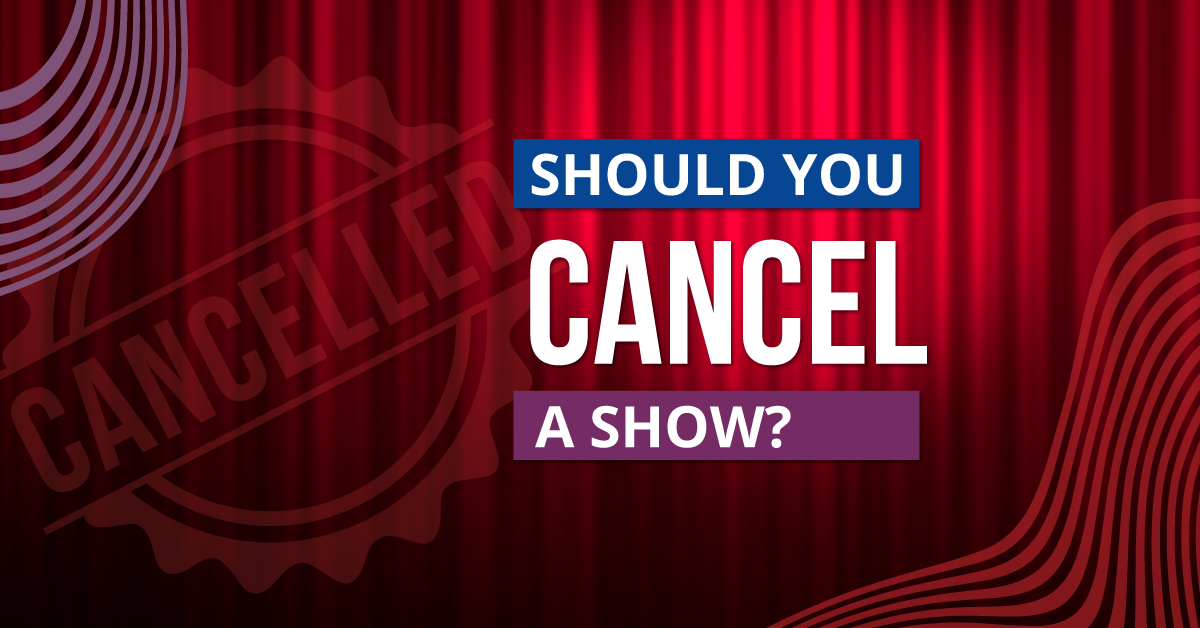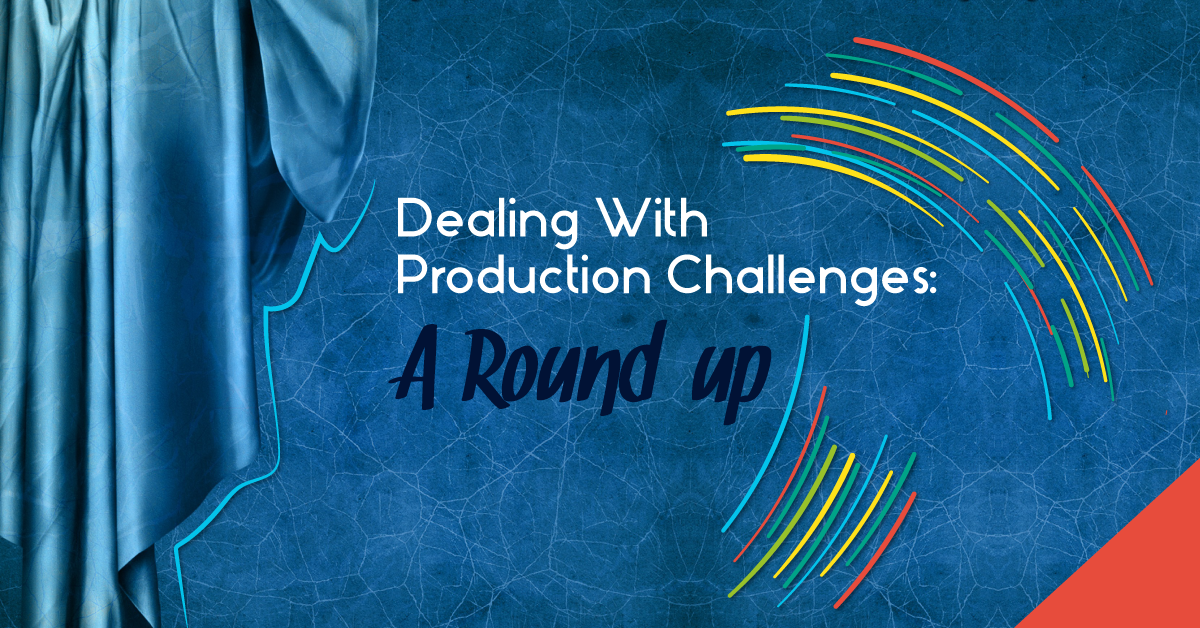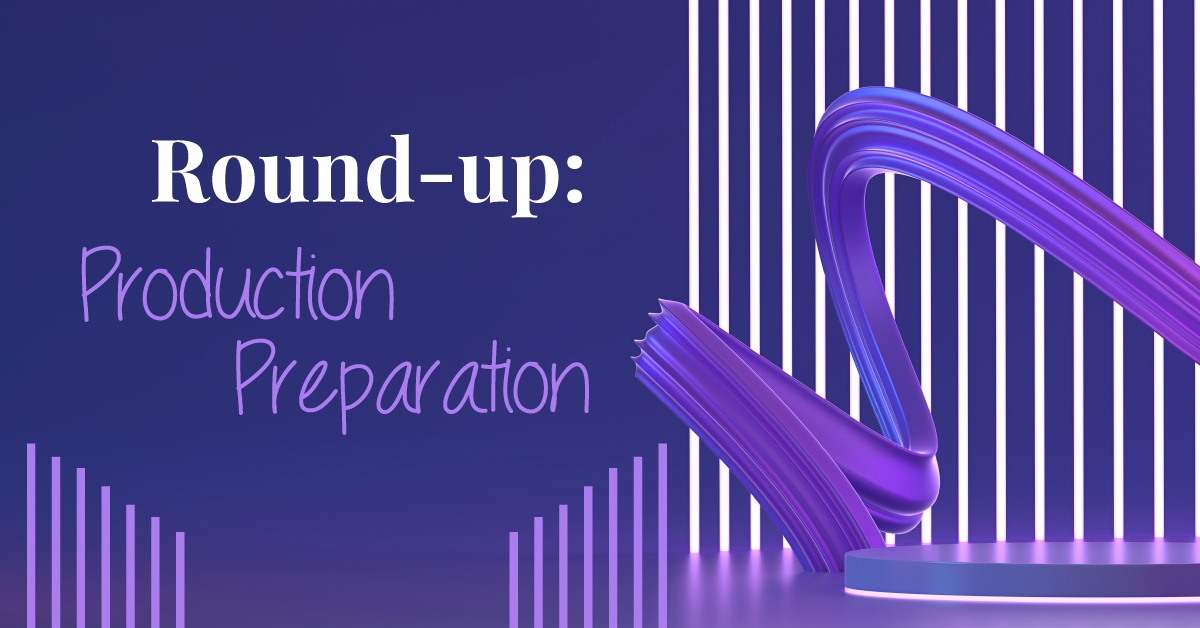Should You Cancel a Show?
Cancelling a show is a difficult decision. There isn’t a “one answer fits all” solution – it must be handled on a case-by-case basis. As much as possible, I believe that “the show must go on.” But sometimes, that’s not possible! It’s important to keep calm and consider various solutions before deciding to cancel. Bring your cast, crew, volunteers and staff together to see if there’s a way that the show you have all worked on can go on as planned. Cancelling can mean disappointment for your students and staff. On top of that, you’ve already paid for the rights to the show and possibly sold tickets, so you must consider the financial loss as well.
I have dealt with many issues that have threatened a performance, and the only two reasons in my 10+ years of working in theatre that a show has been cancelled were weather-related – heavy snow prevented us from either getting to or getting into the building. Fortunately, in both cases, it was only one performance that was cancelled, not the full run of the show.
Let’s look at a few situations that have threatened to cancel a show, and what we did about them.
Power Outage
I have been part of at least three productions that have experienced power outages. In the case of a power outage, the first priority must be the safety of your students, staff, and audience members. In one situation, the power went out first thing in the morning, and we were unable to enter the building. We notified our audience via social media that the performance would definitely be delayed, and might be cancelled. Since it was a beautiful sunny day, our first solution was to present the performance outside, in front of the building, using a battery-operated boom box. Luckily, the power came back on, and once everyone’s safety was ensured, we performed the show in our theatre. We didn’t have to cancel, just postpone, and we only had to refund two tickets – not too bad!
Illness and/or Injury
Over the years, I have had many students contact me before a show to tell me they were sick or hurt. We had to come up with creative solutions and adjustments, but each time we were able to avoid cancelling the show. Here are just a few of them:
- A student with laryngitis and no voice lip-synced onstage while another student spoke and sang his lines on a microphone backstage.
- An assistant stage manager went on with script-in-hand for a student who was hospitalized due to the flu.
- A student with a leading role who broke her ankle in between performances went onstage on crutches, with minor changes to her blocking and choreography (as well as changing her character’s summer job from a lifeguard to a pro shop staff member).
- A different student with a leading role who broke his ankle prior to performances stepped back and performed in the ensemble while an understudy learned the role in three days and went on in his place.
- Many students have performed sick, and napped backstage in between scenes.
- In a show that was double-cast, one student played the shared role for every performance to cover a student who was sick.
Unpreparedness
This is absolutely not a reason to cancel a show, even though it’s incredibly frustrating. Having a student be so unprepared that the show is potentially compromised is disappointing and scary, as well as unfair to all the students and staff who have done their parts to make the show successful. Some of the adjustments I’ve witnessed to avoid cancellation include:
- Running extra rehearsals on top of the regularly scheduled rehearsals
- Switching students’ roles, or replacing an actor entirely
- Cutting monologues or lines, and/or reassigning lines to other actors, while still ensuring the text makes sense
- Hiding scripts in props (such as books or scrolls)
- Having a prompter in the wings or backstage
- Changing the direction of the show entirely, presenting it as a workshop with scripts in hand/reader’s theatre
It’s not ideal to be forced to adjust your show to accommodate an unprepared student. However, if it comes down to cancelling entirely or making an adjustment, I would always err on the side of ensuring the show goes on. It’s a good lesson in humility for the unprepared student, and a cautionary lesson for the rest of the cast.



